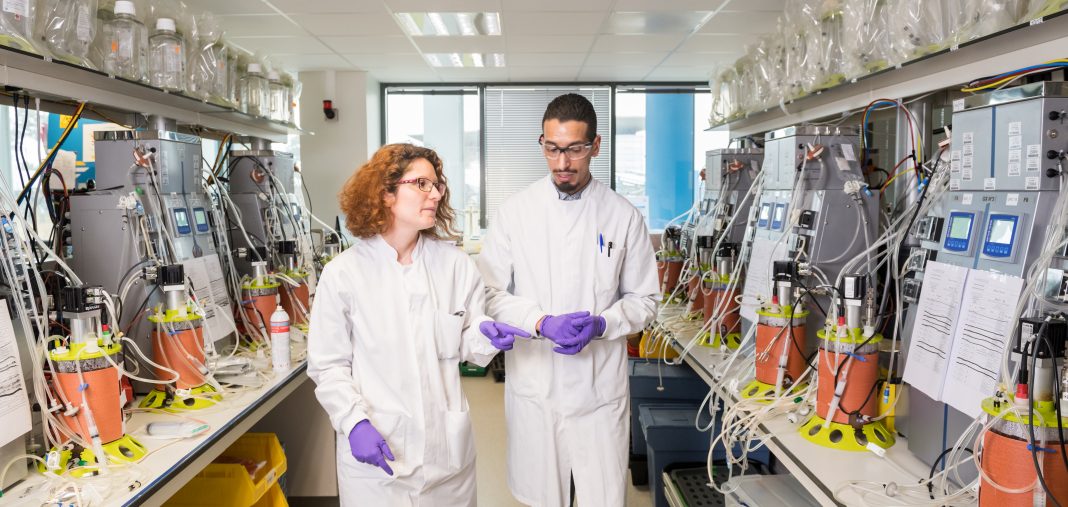Young and emerging biotechnology companies rarely have enough background in biomanufacturing operations and clinical experience to get their products to the markets in an economic and efficient manner. Many turn to contract development and manufacturing organizations (CMDOs), consultants, and bioprocessing equipment manufacturers for help.
Viewing this as an opportunity MilliporeSigma, the life science business of Darmstadt, Germany-based Merck KGaA, has introduced the “Take the Right Path” upstream campaign and a new upstream development service.

According to Ferdinand Dabu, segment marketing manager, process solutions, MilliporeSigma, the aim is to offer life science firms advice on selecting the right cell line production platforms, including the proper cell culture media. The company can also provide media preparations, supplements and ingredients, scalable single-use bioreactors and mixers, product characterization services, and equipment. “We have a comprehensive ecosystem of products and services to help companies with upstream development, or with our upstream development services where we can do it for them” said Dabu.

“The new upstream development service is a comprehensive plug-and-play service,” added Salewa Akande, marketing manager, BioReliance® End-to-End solutions, MilliporeSigma. “Companies can come to us with only their DNA sequence and we can generate the CHO-derived cell line of interest for them. In addition, we can develop the clinical manufacturing process and perform GMP manufacturing for their clinical studies.”
BioReliance’s End-to-End solutions is a CDMO service that serves as a development and manufacturing partner for the upstream development service.
“We have integrated our proprietary CHOZN® cell line platform with the existing process development service that we currently provide, in which we leverage our bioprocessing expertise and technologies. We have packaged it all as a development service option, tailored exactly to the needs of our customers,” continued Akande who, along with Ferdinand Dabu and Omar Wahab, director of cell culture, biopharm materials product area, MilliporeSigma, spoke to GEN at the ESACT Conference in Copenhagen earlier this month.
The company packaged its service with the view to help its customers balance the need for speed in generating preclinical material and getting to the clinic quickly with the need to minimize cost “without sacrificing quality,” said Akande. “We do that by performing certain aspects of the processes in parallel. For example, while we are performing customers’ cell line development, we can run analytical testing in parallel. We enable a seamless transfer between the cell line development and analytical teams so that when they progress to preclinical and later into the clinic, they are assured of the quality of the products that they are moving forward to the next phase.”
Biosafety and Product Characterization Testing
Dabu clarified the point that BioReliance services now represents MilliporeSigma’s services brand comprised of biosafety and product characterization testing and the BioReliance End-to-End solutions that provides the CDMO services.
“We can start clinical manufacturing process development for our customers in parallel with clone selection, and this process of doing process development in parallel helps to save time to get to clinic, which is a key driver for our customers,” explained Akande, who said that after all the initial work has been carried out customers are free, if they want, to move on to another CDMO for additional process development.
The company has an open tech transfer policy where it will transfer the process to any CDMO of their client’s or to the client’s own in-house facility if they have one and if they have the desire to do so.

Omar Wahab noted that over the last few years significant cost pressure has been applied to the pharma industry and people want to get more productivity out of their processes. The traditional fed-batch had been under a lot of pressure, according to Wahab, and people started looking at intensified, continuous, or semi-continuous processing.
“We began to think about how we can develop an offer in the upstream space to support that change in trend,” said Wahab. “Two years ago, at the last ESACT event, we launched our first perfusion medium. Media used historically for perfusion processes were adapted fed-batch media, which are nutrient-rich and designed for shorter processes. But that does not help your cost of goods.
“As a result, we designed a fit-for-purpose perfusion medium that supports longer manufacturing cycles. The balanced nutrients and raw materials provide for longevity and higher productivity translating to an improved cost of goods element from which you will see benefit.”
To further support perfusion processes, MilliporeSigma presented data on its expansion media in development. The data demonstrates the media doesn’t require adaptation across different cell lines and will seamlessly transition from expansion straight through to production, with industry-leading volumetric productivity, said Wahab.
Turning back to taking the right path concept, Akande emphasized that a key requirement for young companies is a partner, someone to guide them as they develop their products, including seeking advice on regulatory issues.
“They want a partner they can trust to help them reach their first milestone after discovery as quickly as possible,” she said, adding that MilliporeSigma can also assist emerging firms in getting to the clinical stage.






